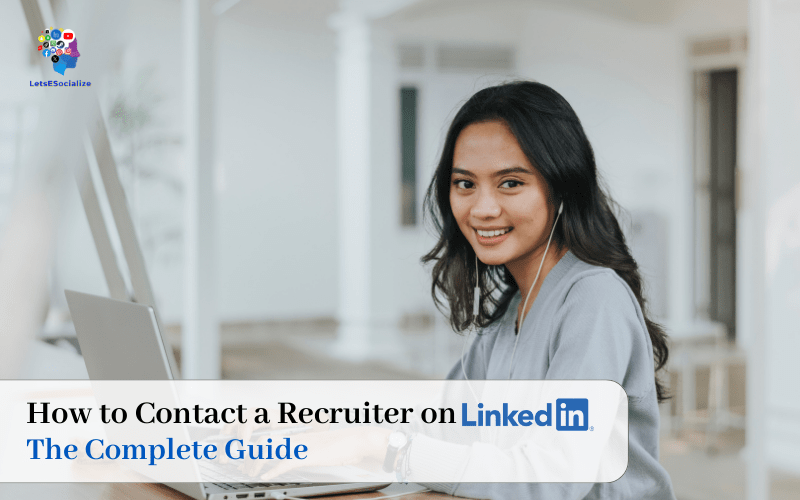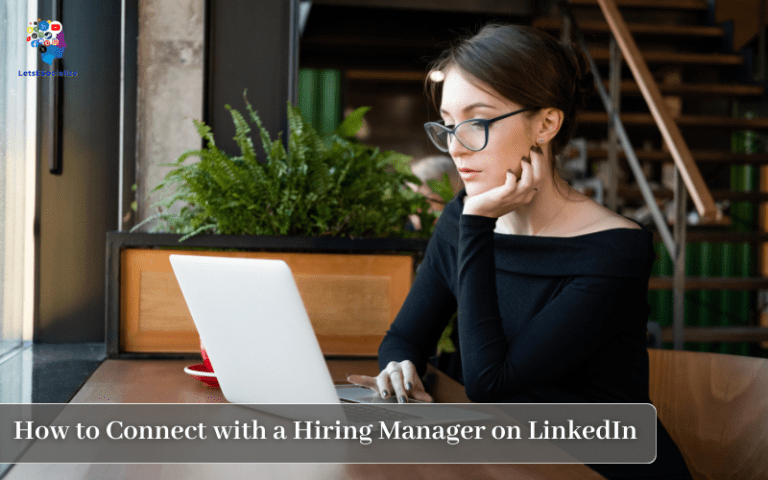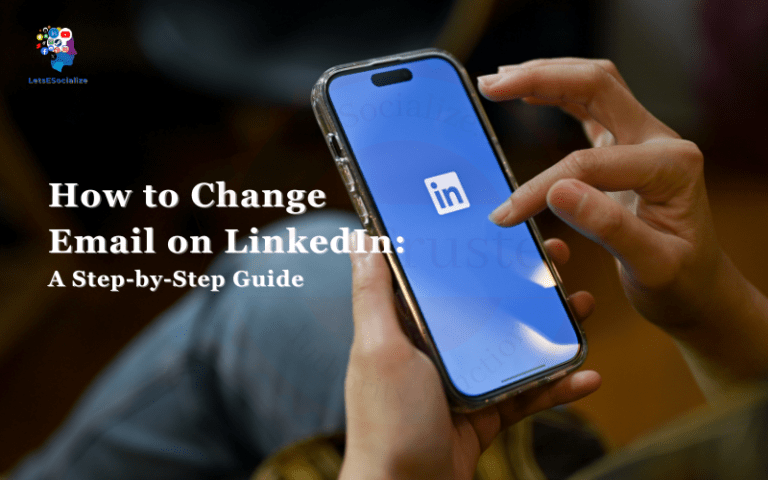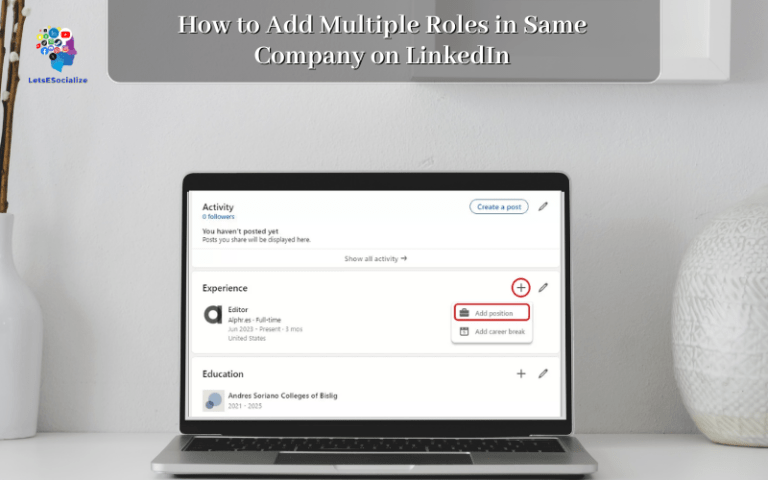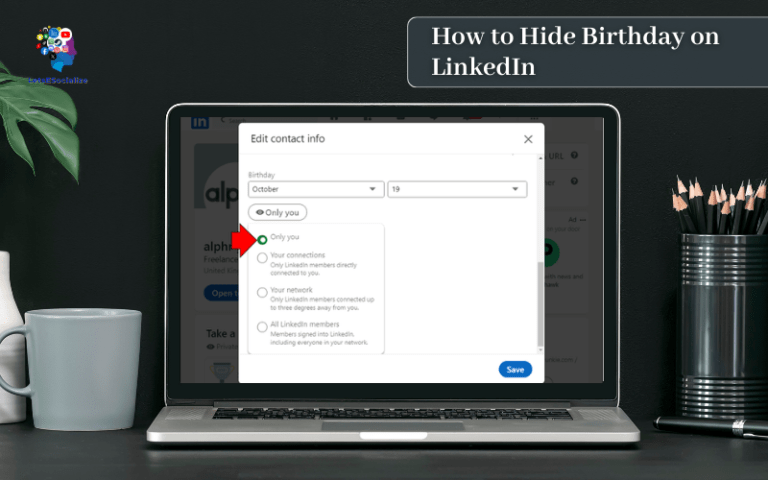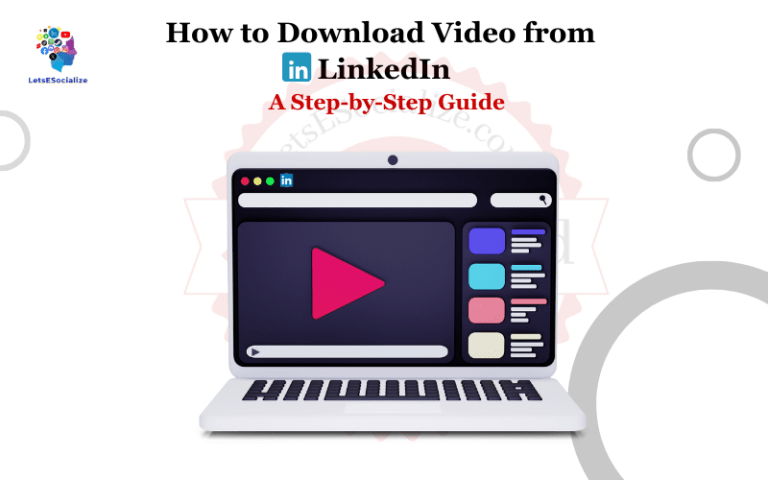LinkedIn has become an indispensable tool for networking and job searching. With over 740 million members, it’s no wonder that recruiters flock to the platform to source top talent. However, with so many profiles, standing out can be a challenge.
Contacting recruiters directly is a great way to get yourself on their radar, but it’s important to do it strategically. This comprehensive guide will teach you how to contact a recruiter on LinkedIn to maximize your chances of landing an interview.
Table of Contents
What is InMail?
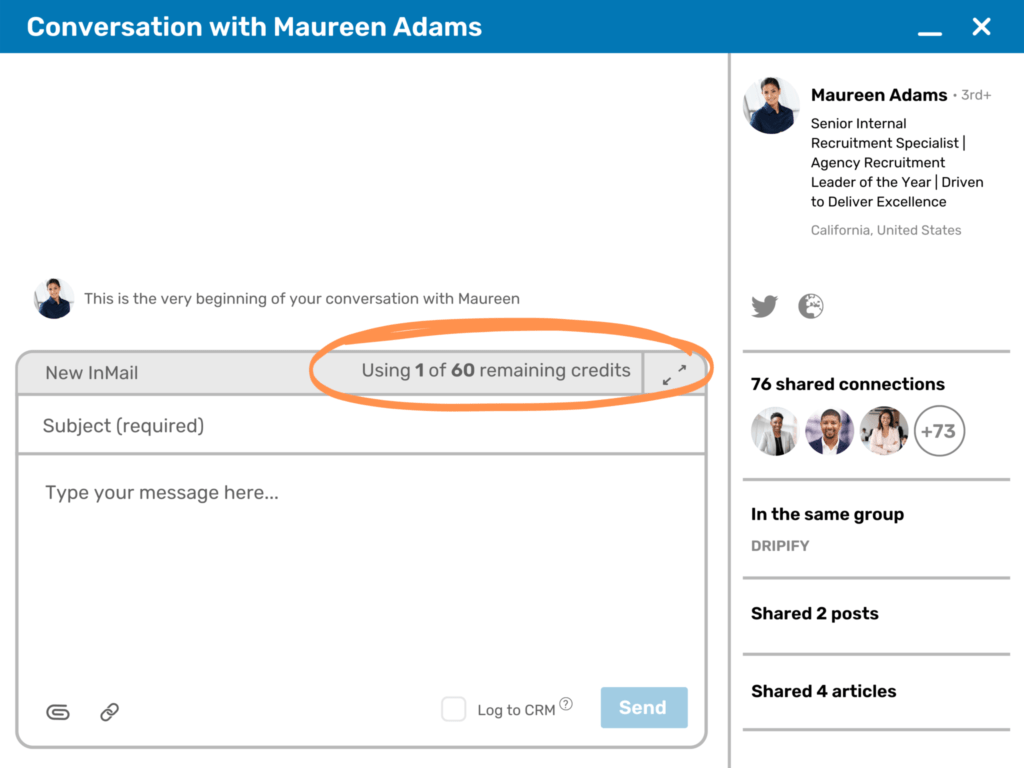
InMail is LinkedIn’s built-in email messaging system. With InMail, you can directly contact any LinkedIn member without needing to connect first. This allows you to reach people you normally wouldn’t be able to message, like executives and influencers.
Here are some key things to know about InMail:
- Private messaging: InMail messages are private and don’t appear in public activity feeds. Only you and the recipient can see the contents.
- Response tracking: You can see if your message has been read, making it easy to follow up.
- Access to anyone: InMail lets you message any LinkedIn member, regardless of connections.
- Premium feature: Sending InMails requires premium LinkedIn accounts and credits.
In summary, InMail provides a private and direct way to contact influential people on LinkedIn you otherwise might not be able to reach. It breaks down barriers and expands your networking capabilities.
Also read: What is InMail on LinkedIn? The Complete Guide to Understanding and Using InMail
Why Contact Recruiters on LinkedIn?
Here are some key reasons why reaching out to recruiters on LinkedIn can fast-track your job search:
- Get on a recruiter’s radar before jobs are posted: By making early connections with recruiters, they’ll think of you when relevant roles become available.
- Increase visibility: Most applications are just one of many in a pile. A personalized message helps you stand out.
- Uncover “hidden” jobs: Some roles are never publicly posted and are only filled through a recruiter’s network.
- Skip formal job requirements: A recruiter may bring you in for an interview even if you don’t meet 100% of the job criteria.
- Land informational interviews: Asking for career advice or an informational interview is a networking opportunity and gets your foot in the door.
- Gain insider intel: Recruiters can provide tips on positions, hiring timelines, interview processes, company culture, and more.
When used strategically, reaching out to recruiters on LinkedIn can shorten your job search and help you land the right roles quicker.
How to Find Recruiters to Contact on LinkedIn
With over 30 million LinkedIn members with “recruiter” in their title, where do you start? Here are the best ways to find relevant recruiters to contact:
Step 1: Find the recruiter using LinkedIn search.

Step 2: Click “Connect.”
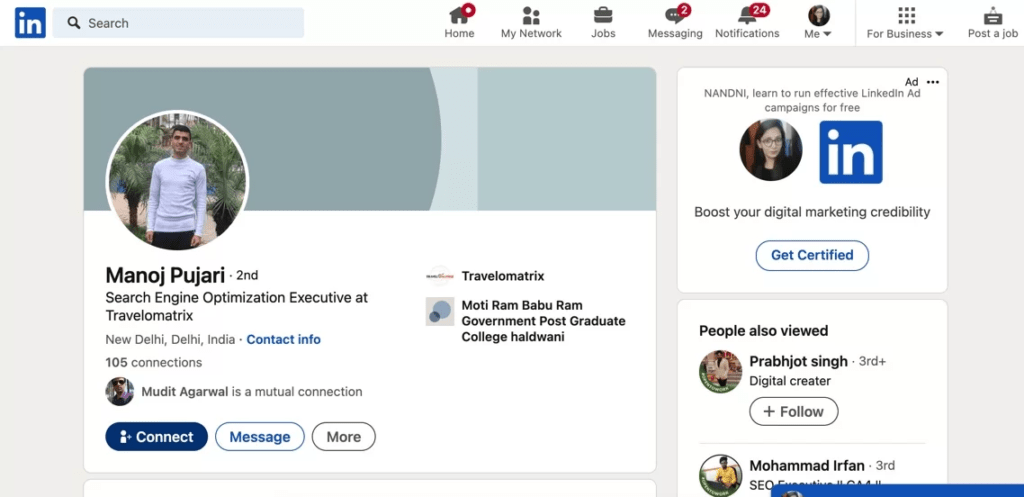
Step 3: Personalize the Request
- Mention your common ground, why you want to connect, how you could help each other out, etc.

Also read: How to Add Connections on LinkedIn
How to Vet Potential Recruiters to Contact
When searching for recruiters on LinkedIn, it’s essential to vet them before reaching out to ensure you’re contacting people open to hearing from you. Here are some tips:
Check for the “Open” badge – See if the recruiter has indicated they are open to being contacted by turning on the “Open To” badge on their profile.
Look for recent activity – Inactive profiles may be out-of-date. Focus on recruiters who have posted content, commented or updated info recently.
Review their experience – See if they list expertise in your function, industry, or role types they recruit for in their profile. Remote recruiters may post locations they cover.
Assess responsiveness – Do they respond to messages and connection requests regularly? Check their average response times shown on their profile.
See if you have any shared connections – It can help to have a mutual connection introduce you, so take note of any you share.
Make sure they align to your goals – See if they recruit for roles, career levels, industries and locations you are targeting in your search.
Look for additional contact info – Some recruiters list their company email or phone number to provide additional options to contact them through.
Best Practices for Contacting Recruiters on LinkedIn
Once you’ve identified recruiters that seem like a good fit, it’s time to reach out. Follow these best practices to help your messages stand out and get positive responses:
Personalize the Connection Request
Always add a customized note when sending a connection request to a recruiter – never use LinkedIn’s default message. Tailor it to show you did research on their profile and why you’d like to connect.
❌ Default message: “I’d like to add you to my professional network on LinkedIn.”
✅ Personalized message: “Hi Jane. I noticed you have experience recruiting software engineers for startups in Austin. I’d love to connect as I may be an ideal fit for future openings you recruit for. I have 5+ years of Python engineering experience at high-growth companies in Austin. I look forward to connecting!”
Introduce Yourself
Briefly introduce yourself and provide key details on your background relevant to the types of roles they recruit for. This context helps them understand why you are reaching out and if they should continue engaging.
Example: “Hi [Name], I came across your profile and thought I’d reach out. I’m currently a Senior Product Marketing Manager with over 8 years of B2B tech marketing experience. I’m exploring new opportunities in the Chicago area, with a focus on early-stage startups…”
Clearly state upfront why you are contacting them and what you are hoping to get from the conversation. Are you interested in new opportunities they may have or know about? Hoping to get career advice? Looking for insights on the roles or companies they work with?
Be direct about your intent so they immediately grasp if it’s a beneficial use of their time.
Also read: LinkedIn Unveils Messaging Inbox For Company Pages
Suggest a Quick Chat
Given that recruiters are busy, increase your chances of a positive response by suggesting a quick 15-30 minute phone or virtual chat. This conveys respect for their demanding schedule.
If they seem open to talking, you can then explore the possibility of meeting up in person.
Provide Your Resume or Profile
Offer to send over your resume or LinkedIn profile URL so they can quickly review your background before responding. Giving them easy access to your credentials increases the likelihood that an initial outreach converts to a productive discussion.
Close With Next Steps
Finish your outreach by suggesting specific next steps, such as connecting on LinkedIn, scheduling a chat, or meeting for coffee. This shows initiative and gives the recruiter an easy next action to take if interested.
Follow Up Politely
If they don’t respond after about a week, follow up once with a polite note checking on the status of your initial message. If you still don’t hear back, move on and refocus your efforts elsewhere.
Sample Outreach Messages to Recruiters
Here are some examples of initial messages you can use as templates when contacting recruiters on LinkedIn:
When Applying to a Specific Role
Subject: Application for [Job Title] at [Company Name]
“Hi [Recruiter Name],
I recently applied for the [Job Title] role at [Company Name] and wanted to reiterate my strong interest in the position. As you’ll see in my resume, I have _ years of experience in [key requirements] which I believe makes me a great fit.
I’d love the opportunity to speak with you briefly about the role and my qualifications. Would you have 15-20 minutes this week or next for a quick phone call?
Thank you for your consideration. I look forward to your response!”
When Not Applying to a Specific Role
Subject: Exploring [Industry/Function] Opportunities in [Location]
“Hi [Recruiter Name],
I came across your profile and noticed your experience recruiting [industry/function] talent for opportunities in [location].
I’m currently in the market for new [industry/function] roles in the [location] area. I have __ years of experience in [key skills/accomplishments] and am particularly interested in [types of companies/roles].
I’d love to connect and was hoping you might have 15 minutes in the next week to chat briefly about companies and roles I may be a fit for. Please let me know if that would work for you.
Looking forward to connecting!”
Requesting an Informational Interview
Subject: Request for Career Advice
“Hi [Recruiter Name],
I hope you’re doing well! I stumbled upon your profile while researching opportunities in [industry] and was very impressed by your background.
I’m currently [current role/situation] but am strongly considering transitioning into [industry] roles in the next year. I’d love to learn more about the typical career paths, skills needed, major players, and overall industry landscape.
Would you have time in the next month for a quick 20-30 minute phone call or coffee chat? I’d welcome any career advice or insights you may have!
Please let me know if this is something you’d be open to. I appreciate any guidance you can provide. Looking forward to hopefully connecting.”
Also read: How to Find Saved Posts on LinkedIn
Tips for Following Up with Recruiters
If a recruiter doesn’t respond to your initial outreach, follow up once after about a week. Here are some best practices for following up effectively:
- Resend your original message so it’s at the top of their inbox again. Politely reiterate your interest in connecting.
- Double check you contacted the right person and have the right email address. Mistakes happen.
- Consider changing the subject line to say “Follow Up” so it stands out as not just a duplicate.
- Briefly share any major updates about your background that may make you more appealing.
- Suggest a specific date/time that works for you to connect in case timing was an issue.
- If you still don’t hear back after the follow up, accept that the opportunity likely isn’t a fit and move on. Continued pestering is never a good look.
- Always maintain a polite and professional tone, even if frustrated. You never know when timing may align for future opportunities.
Things to Avoid When Contacting Recruiters
While contacting recruiters opens doors, there are some major faux pas to avoid so you don’t get ignored or even blacklisted:
✗ Sending cookie-cutter messages to every recruiter you find. Hyperpersonalization is key.
✗ Contacting hundreds of recruiters in bulk from large keyword searches. Target only relevant ones.
✗ Messaging recruiters who clearly don’t align with your background or goals. Do your homework.
✗ Aggressive hard selling of yourself or peppering with interview requests. Take a soft consultative approach.
✗ Oversharing unnecessary personal details and life stories. Keep it professional.
✗ Sending demanding messages about job opportunities they “must” have. Recruiters don’t owe you anything.
✗ Asking about salary and benefits right off the bat before building rapport. Too presumptuous.
✗ Not respecting it if a recruiter doesn’t respond. Don’t get pushy or accusatory.
✗ Lying or exaggerating your background. You’ll get caught and burn bridges fast.
✗ Coming across overly casual, unprepared or entitled. Treat outreach professionally.
Using common sense, being patient and staying professional will serve you well in engaging recruiters successfully on LinkedIn.
Also read: How to Download a LinkedIn Resume
FAQs About Contacting Recruiters on LinkedIn
-
Is it okay to contact recruiters directly if I haven’t applied for a specific role?
Yes, it can be very effective to reach out to recruiters even if you have not applied to a posted position. Many roles are filled through a recruiter’s network before they are ever advertised publicly. Getting on their radar first can give you a big advantage.
-
What’s the best way to find the right recruiter to contact at a company?
Search the “People” section of a company’s LinkedIn page and filter by recruiters and talent acquisition titles. You can also do an advanced search for recruiters who work at the company. Checking their profiles will indicate if they focus on your function/level.
-
When is the best time to contact a recruiter?
Aim to contact recruiters on Tuesday – Thursday, as Mondays and Fridays tend to be packed with meetings. Mid-morning or mid-afternoon (around 10am – 2pm) are typically less hectic times to catch a recruiter when they may have time to review your message.
-
How often should I follow up with a recruiter if they don’t respond?
Follow up no more than once, 5-7 days after your initial outreach. Anything more than one follow-up risks being perceived as pushy or desperate. If they never respond, focus your efforts on other recruiters.
-
How do I get introduced to a recruiter through a mutual connection?
Browse your LinkedIn connections to see who you may share with a recruiter. Reach out to that person explaining you are interested in connecting with the recruiter for career advice and ask if they would be willing to provide a warm introduction on your behalf.
-
Should I add a recruiter as a LinkedIn connection before contacting them?
It’s fine to include a connection request as part of your initial outreach. But make sure your message follows best practices and clearly indicates why you want to connect. Random connection requests without context often get rejected or ignored.
Key Takeaways
- Contacting recruiters directly on LinkedIn can accelerate your job search by getting on their radar early and landing interviews faster.
- Search strategically for recruiters at target companies, locations, and those specializing in your function or industry.
- Thoroughly vet potential recruiters before reaching out to make sure they align with your goals.
- Personalize your messages, introduce yourself effectively, suggest a quick chat, and provide next steps.
- Follow up once politely if they don’t respond, but avoid being perceived as pushy or desperate.
- Focus on building relationships, providing value, and making a recruiter’s job easier and you’ll maximize your chances of success.
So get out there and start connecting with recruiters on LinkedIn! The right opportunities may be just one message away. Just remember to use your best judgment and always be professional when contacting recruiters. With the strategies in this guide, you’ll be better equipped to kickstart conversations that advance your career.

